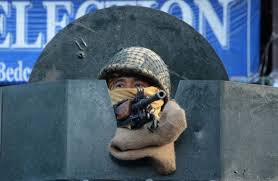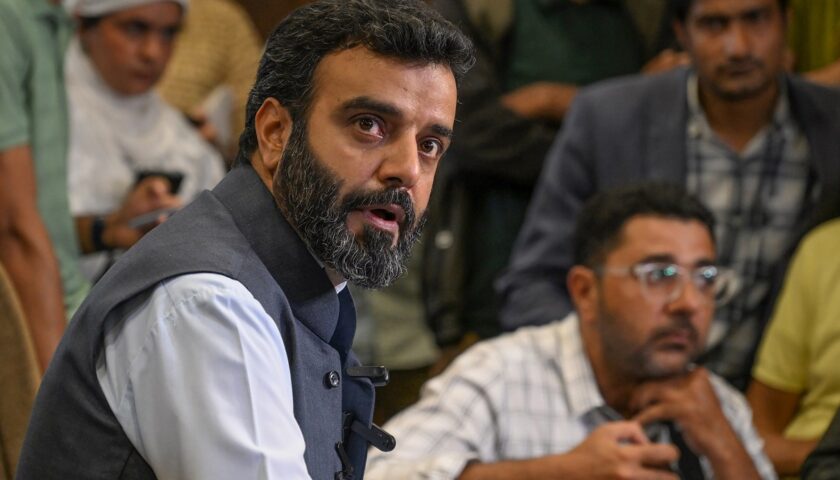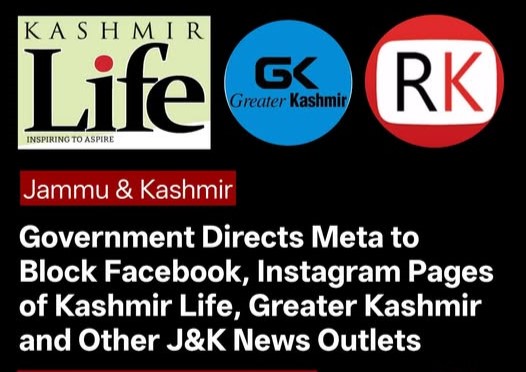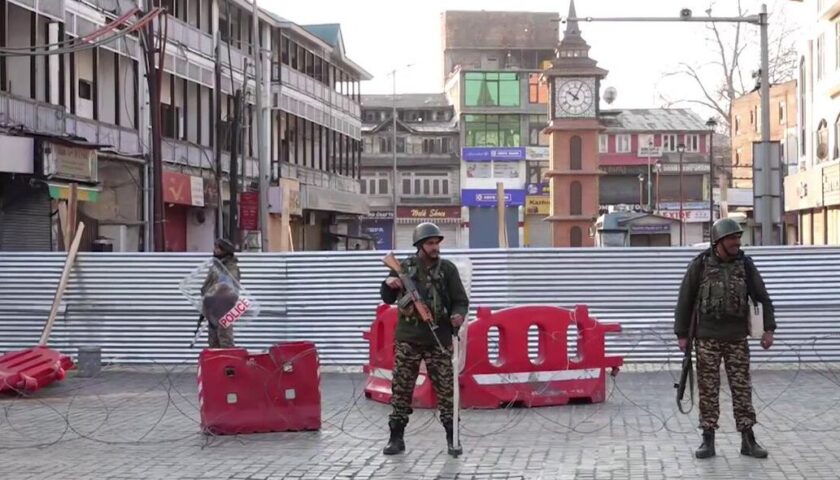The visit to Kashmir this week by the Centre’s representative, former Intelligence Bureau Chief Dineshwar Sharma, has ended with even less hope that a way forward will emerge.
In fact, commenting on the visit, former RAW chief and long-time IB operative Amarjit Singh Dulat remarked that ‘I hope they don’t reduce him (Sharma) to a zero.’ Dulat, who has led the Centre’s covert talks initiatives in the past, acknowledged that hope appears to have dimmed.
To be sure, a larger number of delegations met Sharma than during his first visit as representative about a month ago. He also travelled beyond Srinagar this week to places like Anantnag, and he met some youth who have been categorised as ‘former stone-pelters.’
During his earlier visit, he had mainly met delegations at the Hari Niwas palace, where he stayed.
Unconfirmed Rumours
There were rumours after Sharma’s first visit that some prominent separatist leaders had secretly met him. Even if this is true, it does not seem as if secret talks could lead to a solution. The so-called ‘leaders’ could not even begin to promote such a solution if they could not even say they had met anyone to negotiate it.
Complicating that problem is the fact that a large proportion of the young people in the Valley have no regard for the established faces of the separatist movement.

Sensitive Responses
On the other hand, a large number of the groups that have met Sharma, during both his visits, have focused on administrative matters. One group, for example, is said to have sought the transfer of a Tehsildar. Others complained about power outages, bad infrastructure, and unresponsive administration.
A few other groups recommended sensitivity with regard to security measures. One south Kashmir group, for example, recommended that the forces be given far more incentives to get a local militant to surrender than they are given to kill militants.
The ranks of militants—both local and foreign—appear to have been growing despite the onset of winter. So has the deployment of forces, particularly in south Kashmir, over the past few months.
Election Imperative
There is some speculation that Sharma’s objective could be downscaled to at least getting the ground ready for elections to be held. A by-election to fill the Lok Sabha seat from south Kashmir is pending, as are panchayat and other local body elections.
The Anantnag (south Kashmir) Lok Sabha seat fell vacant more than a year ago, when the incumbent Chief Minister, Mehbooba Mufti, resigned the seat.
Election Postponement
Elections were to be held on 12 April this year but were postponed after large-scale violence during the by-election to fill the Srinagar seat on 9 April – just three days before the south Kashmir by-election was due.
Since then, the level of militancy and the number of counterinsurgency operations have risen, and the situation has been considered too risky to hold the elections.
The government wanted to hold the panchayat elections in December, but that is clearly not happening.
Diplomatic Line
On the other hand, there are some who believe that the exercise was undertaken to build an argument for the arena of diplomacy. Indian diplomats could argue that Kashmiri separatist leaders did not agree to engage in negotiations.
In this context, several observers have pointed to the fact that Sharma was appointed just before US Secretary of State Rex Tillerson was due to visit India. Tillerson might have been expected to raise the Kashmir issue in the context of India’s relations with Pakistan, and the context of Indo-US cooperation over Afghanistan.
Historical Parallels
If that was indeed the reason for Sharma’s appointment, it harks back to other rounds of talks, mainly between India and Pakistan. Prime Minister Vajpayee had offered talks with Pakistan on the eve of a visit by the then Deputy Secretary of State Richard Armitage in 2003.
And Nehru sent his cabinet colleague, Swaran Singh, to engage with Pakistan’s then Foreign Minister, Zulfikar Ali Bhutto, in 1963. That too was at the behest of the US and the UK, which had sent the Brooks-Henderson delegation to press for it after the Indo-China war of 1962.




